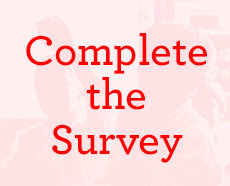Reading Audit Research Hub Pillars of Reading
Find reports and links to best-practice in relation to the Pillars of Reading below:
-
The reading framework
Guidance for primary and secondary schools to meet existing expectations for teaching reading from the Department of Education in England. The framework covers the importance of talk, stories and systematic synthetic phonics (SSP), how to engage and motivate pupils to develop a love of reading, and the existing expectations for teaching reading, as set out in: the national curriculum programmes of study,
the statutory framework for the early years foundation stage and Ofsted’s education inspection framework.
p{font-size:0.8em}. Department for Education (2023). The Reading Framework
-
Reading for Life: The Impact of Youth Literacy on Health Outcomes
If literacy is “an important mediator in the relationship between socioeconomic inequality and health disparities” (Sanders et al., 2009, p.131), it is essential that educators and community leaders have access to the vast collection of research on the subject, providing them with every tool possible to ensure students’ minds and bodies thrive.
Reading for Life seeks to provide a gateway to that research. Reviewing data on reading and literacy and their impact on the physical, mental, and social-emotional components of health.
p{font-size:0.8em}. Scholastic Research & Validation. (2023). Scholastic Reading for Life: The Impact of Youth Literacy on Health
Outcomes. New York: Scholastic.
-
Connecting early language and literacy to later reading (dis)abilities: Evidence, theory and practice
: Phonics
A discussion of evidence, theory, and practice connecting early language and literacy to later reading disabilities.
p{font-size:0.8em}. Title: Connecting early language and literacy to later reading (dis)abilities: Evidence, theory and practice
Authors: Scarborough, Hollis S.
Publication Date – 2001
Description – A discussion of evidence, theory, and practice connecting early language and literacy to later reading disabilities
Journal Name –
Source – In S. B. Neuman & D. K. Dickinson (Eds.), Handbook of early literacy research (Vol. 1, pp. 97-110). New York: Guilford Press
-
Ending the Reading Wars: Reading Acquisition From Novice to Expert
There is intense public interest in questions surrounding how children learn to read and how they can best be taught. Research in psychological science has provided answers to many of these questions but, somewhat surprisingly, this research has been slow to make inroads into educational policy and practice. Instead, the field has been plagued by decades of “reading wars.” Even now, there remains a wide gap between the state of research knowledge about learning to read and the state of public understanding. The aim of this article is to fill this gap. We present a comprehensive tutorial review of the science of learning to read, spanning from children’s earliest alphabetic skills through to the fluent word recognition and skilled text comprehension characteristic of expert readers. We explain why phonics instruction is so central to learning in a writing system such as English. But we also move beyond phonics, reviewing research on what else children need to learn to become expert readers and considering how this might be translated into effective classroom practice. We call for an end to the reading wars and recommend an agenda for instruction and research in reading acquisition that is balanced, developmentally informed, and based on a deep understanding of how language and writing systems work.
p{font-size:0.8em}. Castles, A., Rastle, K. and Nation, K. (2018) ‘Ending the Reading Wars: Reading Acquisition From Novice to Expert’, Psychological Science in the Public Interest, 19(1), pp. 5–51. doi: 10.1177/1529100618772271.
- “National Reading Panel – Teaching Children To Read ":https://www.nichd.nih.gov/sites/default/files/publications/pubs/nrp/Documents/report.pdf
Book reviewed in this article:Teaching children to read: An evidence-based assessment of the scientific research literature on reading and its implications for reading instruction. By The National Reading Panel. 2000.
p{font-size:0.8em}. Cunningham, James. (2001). The National Reading Panel Report. Reading Research Quarterly – READ RES QUART. 36. 326-335. 10.1598/RRQ.36.3.5.
-
Decoding, Reading, and Reading Disability.
To clarify the role of decoding in reading and reading disability, a simple model of reading is proposed, which holds that reading equals the product of decoding and comprehension. It follows that there must be three types of reading disability, resulting from an inability to decode, an inability to comprehend, or both. It is argued that the first is dyslexia, the second hyperlexia, and the third common, or garden variety, reading disability.
p{font-size:0.8em}. Gough, P. B. and Tunmer, W. E. (1986) ‘Decoding, Reading, and Reading Disability’, Remedial and Special Education, 7(1), pp. 6–10. doi: 10.1177/074193258600700104.

